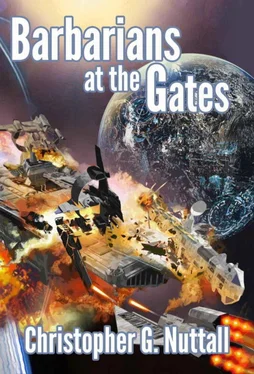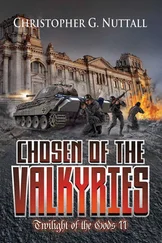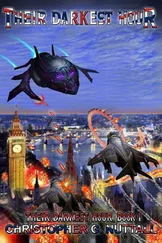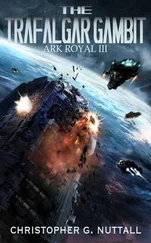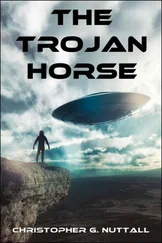“It can always get worse,” Marius said sourly. “Anyway, please go check it out. We can’t advance through the Asimov Point without reinforcements, so if you think it’s necessary, ship in a couple of regiments and deploy them as you see fit.”
“They’ll be pleased,” Vaughn said. “Damage control isn’t what we jarheads signed up to do.”
Marius shrugged. Now that Admiral Justinian’s forces had been beaten back, he’d taken the risk of carrying out more extensive repair work on some of his starships. ECM buoys would create the impression that his fleet was still on alert, watching the Asimov Point carefully. The CSP would keep any intruding recon drones from getting close enough to realize that they were being conned.
But even with the Fleet Train, the repair work was going slowly. Too slowly. He’d sent an urgent request to the Core Worlds for as many mobile repair yards as they could send forward, along with fortress components and additional crew. But he doubted he’d get everything he wanted, or even everything that he absolutely needed. He knew that the Senate would still be reeling from the disaster at Jefferson, and would be looking for someone to blame—him.
But he couldn’t let that affect him, or his decision making, or this war would be over soon—and in a way the Grand Senate assuredly would not like.
“They may need to do more of it,” Marius said after another long pause. “We can’t leave this system without risking overall defeat.”
“So who gets there first with the most wins,” Vaughn said thoughtfully. “In the long run…can Justinian win?”
Marius studied the star chart. “If the other Sector Admirals and governors remain loyal, then no—he can and will be ground into powder once the massed Federation Navy is pointed at him. If not…the Federation could shatter into a myriad of competing powers. In that case, Justinian might win by default.”
“Not a pleasant thought,” Vaughn agreed. “One other point: I would like to deploy Marines to escort the younger officers and crew on Maskirovka. They won’t have any experience of life on a settled world, and may get into real trouble.”
“Babysitting,” Marius said with a nod. “See to it. They won’t like it, but it’s for their own good. I can do without having to search for kidnapped crew—or bailing them out of jail.”
“You could always send in the Marines and break them out of jail,” Vaughn offered.
Marius allowed himself a moment to consider the image before dismissing it with a wave of his hand.
“Come on; it will be fun—and cheap.” Vaughn’s eyes twinkled.
“Be gone, tempter,” Marius said with a laugh. “I have to write the report. If I’m really lucky, it won’t get me summarily demoted when the Senate reads it.”
“They won’t do that, will they?” Vaughn asked. “You got us all out of the trap.”
“Why not?” Marius asked. “Who else do they have to blame?”
The Human Race’s Burden, according to the Federation, is to civilize every other intelligent race. Toward this end, the human race assumes control of every other intelligent race encountered by the Federation. Despite the propaganda, the overall intent is far more sinister—by making other races dependent upon humanity, any threat they pose is forever removed. Needless to say, this practice causes no end of resentment among the client races…
-
An Irreverent Guide to the Federation , 4000 A.D.
Maskirovka, Boskone System, 4092
“You see, all the Purples cannot be trusted,” the man announced. Roman hadn’t caught his name when he’d turned up and bought the table of Navy personnel a round of drinks. “We have to keep the boot on their necks for their own good…”
Roman shrugged, doing his best to conceal his disgust. After a day in Maskirovka City—the unimaginatively named capital of Maskirovka—he’d decided to see some local color and head to one of the alien cities on the gas giant’s moon. There had been little to see in Maskirovka City, just another spacer town with bars, brothels and overpriced souvenirs, trying to drive spacers and other visitors deeper into debt. Merchant crewmen were generally paid in a lump sum whenever they reached safe harbor and the planet’s inhabitants were devoted to relieving them of as much money as possible before they left. Not that most of them complained. After months on merchant ships, breathing in each other’s air and getting on each other’s nerves, the chance to get drunk and enjoy some female company had to be very welcome.
“They just can’t be trusted,” the man insisted, waving toward the bartender. “Can you believe—they think they would have achieved greatness if not for us!”
Roman had seen aliens before, but he’d never previously encountered a native of Maskirovka. But that shouldn’t have been surprising. According to the files he’d accessed on the way down to the surface, none had ever set foot off the planet, unless they’d been lifted illegally by smugglers and taken to a hidden base.
The alien showed no sign of listening to the conversation. Like roughly half of the aliens known to humanity, the Purples were humanoid, but there the resemblance ended. Their skins looked like gooseberry skins—although of a sickeningly purple color—and their eyes were dark and lidless. The alien was clearly female—she had prominent breasts, larger than the human norm—and was actually taller than Roman. If he recalled the files correctly—his implants lacked a secure connection on the surface—the intelligent Purples were all female; the males weren’t intelligent and lived only for food, fighting and fucking, perhaps not in that order. He’d mentioned that to Elf, who was seated on the other side of the table with a bored expression, and she’d quipped that they were just like humanity. Roman had blushed scarlet before he realized that he was being teased.
He deliberately looked away from the alien—and their unwelcome entertainer—and studied the bar itself. It had started life as an alien building and all the proportions were odd, even though someone had insisted on modifying it to better suit humans. A display of alien artwork covered one wall, paintings that reminded him of some of the early rock carvings done by RockRat asteroid miners during the First Expansion Era. Many focused on humanity and while the overall tone was positive, there was something sinister about seeing his race portrayed as godlike entities.
But perhaps the natives considered them to be gods. Humans had changed the shape of their world forever.
Years ago, according to the files, the Purples—their name for themselves was unpronounceable by humans—had been on the verge of entering the computer age. The files claimed that they’d been loosely comparable to Earth of 1914, although they’d actually advanced faster in some areas than humanity had—a fact that had been carefully buried under a mountain of statistics and dry data. It had taken Roman several hours to work it out from the sparse hints in the files. In fact, he had a suspicion that if Enterprise’s computers hadn’t recognized him as her acting captain, he wouldn’t have been able to access and download the complete file.
Their advancement hadn’t helped when the Federation arrived. The human race had landed, made contact with the alien leaders and started supplying them with technology to help correct their problems. Free food had been provided for aliens on the verge of starvation, technological fixes had been offered for other issues…and the humans had eventually taken over the world. Over the years, the Purples had been systematically reduced to little more than zoo animals, seemingly for their own good.
Читать дальше
